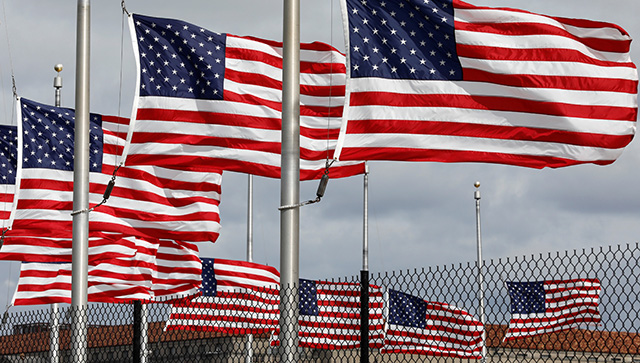The United States grew 386,000 square miles last month – an area that’s nearly twice the size of Spain. The development was announced by the US department of state. But how did this happen? And what does it mean? Let’s take a closer look: As per Metro.co.uk, the Department of State said the US’ geographic coordinates that delineate the outer limits of its continental shelf have shifted in parts beyond 200 nautical miles from the coast. The extended continental shelf (ECS) is that part of the continental shelf that remains under shallow water. As per NDTV, data from the National Oceanic and Atmospheric Administration (NOAA) and United States Geological Survey (USGS) was used to determine the expansion of the ECS. The NOAA and USGS have been gathering and analysing data since 2003. The growth was measured by analysing the ECS’ depth, shape and other submerged geophysical features.
As per The Times of India, the state department headed up the research via the US ECS Task Force.
This task force consisted of 14 different agencies. The newspaper quoted state department project director Brian Van Pay said, “Forty missions at sea, going to areas that we’ve never explored before, finding entire seamounts we didn’t even know existed.” The US’s largest ECS area is in the Arctic. Here, it extends 350 nautical miles to the north in the eastern section and over than 680 nautical miles in the western portion, the state department said on 19 December. The ECS also comprises six other regions
- The Atlantic east coast
- The Pacific west coast
- The Bering Sea
- The Mariana Islands
- Two parts of the Gulf of Mexico.
America’s total ECS area is roughly twice the size of California – its third largest state. “The continental shelf is the extension of a country’s land territory under the sea,” the state department was quoted as saying by The Times of India. “Like other countries, the United States has rights under international law to conserve and manage the resources and vital habitats on and under its ECS,” the state department was quoted as saying by Metro.co.UK.
“The ECS has ‘many resources’ like corals and crabs and ‘vital habitats for marine life,’” it added.
The Wilson Centre, a think-tank based in Washington, DC, said the development impacts the US’ efforts to secure its territorial rights in the Arctic. “It has long been clear that the United States has major economic interests in undersea territory rich in oil, natural gas, minerals and sea life to which it has sovereign rights under the law of the sea as reflected in the Law of the Sea Convention,” said the Wilson Center. NDTV quoted the Wilson Centre as saying the the US has the largest exclusive economic zone on the planet – which allows it to safeguard its sovereign rights to areas submerged under water. “It is also an important milestone reflecting US engagement with the law of the sea as reflected in the UN Convention on the Law of the Sea and as an aspect of advancing major US interests in the Arctic and other regions,” it added. There is ‘no need for a future negotiation with Russia’ over territorial rights, the Wilson Center added as per Metro.co.uk. That is because each nation determined its continental shelf limits with regard to a boundary set by a 1990 agreement between the US and the Union of Soviet Socialist Republics on the Maritime Boundary. The Times of India quoted Van Pay as saying Canada might make an overlapping claim which can be sorted out in the future. With inputs from agencies


)

)
)
)
)
)
)
)
)



